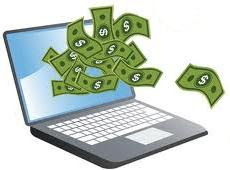During challenging economic climates it is natural for people to tighten their belts a little - but how can do this effectively when it comes to financial products?
In some areas of your life it can be easy to cut your spending a little - perhaps taking a coffee from home on the train rather than buying one from a café - but other bills are harder to avoid. Financial products tend to fall into the latter category, but you should still do all you can to reduce the amount of money you pay to banks.
Below are four suggestions for how you might do this:
Trim unnecessary products - While some products may sound like they are great value, this does not mean you necessarily need them. For example, a packaged account may offer you a raft of benefits, but if you do not use any of them, then you are shelling out for no reason. There is a chance that you may have been paying for a product unnecessarily, which could even lead to compensation if you were mis-sold the deal. There are a huge number of people who have been able to submit a payment protection insurance claim because of this type of situation. 
Shop around - You should always shop around to see if another bank is offering a better deal - you never know, your bank may be so keen to hang on to your custom that they could try to match the terms.
Avoid charges - This is easier said than done, but if you can break the cycle of going over your overdraft or credit limit and getting charged, you can make small savings that add up over the course of a year.
Live within your means - This is related to the previous point, but is about shifting your attitude towards money. If you do not have enough money to pay for something then do not buy it; do not put it on your credit card or borrow from the bank, as you will probably end up giving the bank cash to borrow. By living within your means you can avoid this problem completely.
Many readers overlook the importance of setting aside money specifically for emergencies. An emergency fund helps you avoid high-interest debt when unexpected costs arise, such as medical bills or car repairs. Start by setting a small, realistic savings goal e.g., $500 within three months and automate transfers into a dedicated savings account each payday. By having this cushion, you minimize reliance on credit cards or predatory lenders. For times when you need a quick cash infusion while you build your reserve, consider options like a $500 cash advance today.
Simply reducing monthly expenses is often not enough; you also need a clear plan for paying down existing debt. Techniques like the “snowball” method (paying off smallest balances first) and the “avalanche” method (tackling highest-interest debt first) can accelerate your progress. Track your balances and interest rates in a spreadsheet or budgeting app, and funnel any extra income such as a tax refund—toward the highest-priority balance. If you have bad credit but still need to consolidate or refinance, you might qualify for a small, short-term personal loan, such as a $1,000 quick loan no credit check.
When credit scores are low, many borrowers consider high-risk loans. However, these often come with exorbitant interest rates, hidden fees, and strict repayment terms. Before committing, compare any “high-risk” option with alternatives like credit-builder loans, peer-to-peer lending, or negotiating with existing creditors for modified payment plans. Learning more about high risk loans online can help you weigh the true cost and explore lower-cost options instead.
If traditional banks and credit unions turn you away, private money lenders can be a viable alternative especially for emergency funding or small business needs. Private lenders often consider factors beyond FICO scores, such as income stability or collateral. Yet, rates can vary widely, so shop around and read lender reviews to avoid predatory terms. For a more comprehensive list of reputable sources, investigate online private lenders specializing in personal loans.
When you need to cover minor expenses—like urgent car repairs or a short gap between paychecks—a small personal loan can bridge the gap without resorting to multiple high-interest credit cards. Small personal loans often have lower borrowing amounts (e.g., $500–$2,000) and shorter terms, so you pay less interest overall. Make sure to compare interest rates, origination fees, and repayment schedules. You can start your search by exploring options for a small personal loan online.
Bad credit shouldn’t mean no access to financing. Some lenders specialize in offering guaranteed-approval loans for applicants with poor FICO scores. Although these loans often carry higher rates, they can help you rebuild credit when repaid on time. Carefully review each lender’s terms and ensure that the loan’s total cost fits within your budget. For readers seeking this route, check out resources on bad credit loans guaranteed approval.
Building an Emergency Fund for Unexpected Expenses
Effective Debt Repayment Strategies
Understanding High-Risk Loans and Safer Alternatives
Exploring Private Lending Options
Considering Small Personal Loan Solutions
Securing Loans with Bad Credit








Leave a Reply: